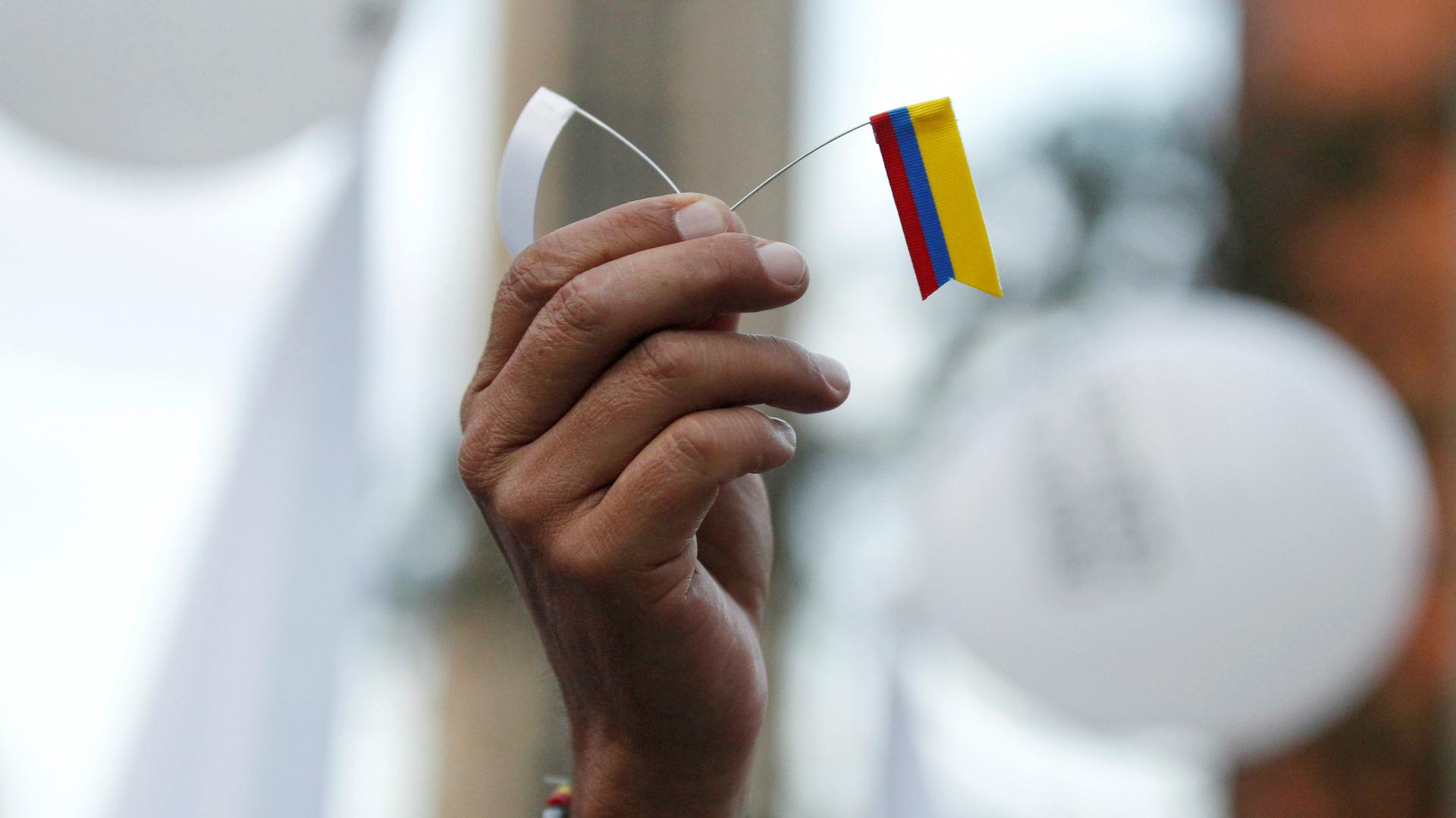Colombian Congress ratifies new peace deal with FARC, but implementation will be a challenge
A demonstrator rallying in support of Colombia's peace agreement with the FARC holds a tiny flag during a march in Bogota, Colombia, on Nov. 15, 2016.
After pushing a revised peace deal with the FARC rebels through Congress, Colombian President Juan Manuel Santos got down to a far bigger challenge Thursday: implementing it.
The lower house's unanimous vote in favor of the deal Wednesday night set off a countdown to end a conflict that has burned for over half a century and killed more than 260,000 people.
"What comes now is the implementation of this accord … We face an enormous challenge," Interior Minister Juan Fernando Cristo told a news conference.
Within five days, the Revolutionary Armed Forces of Colombia, or FARC, must begin demobilizing and surrendering their weapons.
Under the deal, the process must be complete within six months. The FARC will relaunch as a political party.
Cristo said the next step would be to present to Congress an amnesty for FARC members — the most contested part of the accord.
Amnesty
Santos, who won this year's Nobel Peace Prize, hailed the deal's passage Wednesday night on Twitter, expressing "gratitude to Congress for historic backing for Colombians' hopes for peace."
Now, "D-Day begins" on Thursday, he said.
But the delicate transition to peace will take place amid bitter opposition to the deal, which Santos's rivals say is too soft on the leftist guerrillas.
Voters shocked the world by rejecting an earlier version of the deal in a referendum last month.
That sent peace negotiators back to the drawing board after nearly four years of talks.
Rather than risk a second referendum, the government and rebels decided to have the revised deal ratified in Congress.
Opponents say the new version was only changed cosmetically.
The deal passed unanimously in both houses of Congress, where Santos has a majority.
His top opponent, former president Alvaro Uribe, led a walkout by his right-wing party, the Democratic Center.
"How is the Congress going to approve what the Colombian people rejected?" Oscar Ivan Zuloaga, a former presidential candidate for Uribe's party, said during the House debate.
Uribe and his allies argue the deal grants impunity to rebels guilty of war crimes, giving them seats in Congress rather than sending them to jail.
The biggest bone of contention is an agreement for non-custodial sentences for FARC members who admit to their crimes. Under the deal, rebel leaders will be able to hold public office while still serving their sentences.
Fragile ceasefire
Lawmakers must now approve a series of bills to implement the peace accord, beginning with the amnesty for the guerrillas.
"A first set of pardons is currently being prepared," government peace delegate Sergio Jaramillo told the news conference.
"Meanwhile an amnesty law will be submitted to the legislative process."
A ceasefire has been in effect since August, but it has been shaken in recent weeks by violence.
Two guerrillas died in what authorities said was a clash with the army. A wave of assassinations and attacks has also targeted community leaders in conflict areas.
Disarmament
The FARC's 5,700 fighters are to concentrate in designated disarmament zones, laying down their weapons under UN supervision.
"If that process goes well and without problems, it could change the political balance of power created by the plebiscite and the opposition's rejection of the accord," said Kyle Johnson, an analyst with the International Crisis Group.
But he said there are still "challenges related not only to the politics but to the implementation on the ground."
This is the fourth attempt to make peace with the FARC since it rose up against the state in 1964.
The conflict has drawn in various guerrilla forces, right-wing paramilitaries and drug gangs over the years.
The government is meanwhile seeking to salvage talks with a smaller rebel group, the National Liberation Army (ELN).
The talks broke down last month just as they were due to begin when the rebels failed to release a former lawmaker they are holding hostage.
Every day, reporters and producers at The World are hard at work bringing you human-centered news from across the globe. But we can’t do it without you. We need your support to ensure we can continue this work for another year.
Make a gift today, and you’ll help us unlock a matching gift of $67,000!
